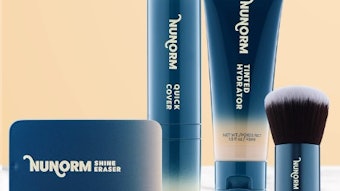
The connection between diet and the skin has long been known, but new research points to the connections between skin and gut health for a range of issues, including acne, atopic dermatitis, eczema and psoriasis.
Bengaluru, India,-based Hairline International Hair & Skin Research & Treatment Center conducted a two-year observational study from July 2021to June 2023 and found that, among patients seeking treatment at Hairline International during the study period, "a staggering 72% [with acne vulgaris] displayed indications of poor gut health, marked by symptoms like food intolerance, allergies, GERD and digestive problems," according to Kala Vimal, MD, consultant dermatologist and cosmetologist at Hairline International.
The data squares with a 2021 review of the skin-gut axis published in the journal Microorganisms, which found "observations such as the prevention of AD [atopic dermatitis] through probiotics and the increased prevalence of intestinal comorbidities in chronic skin diseases suggest that skin diseases can be linked to the gastrointestinal system."
Furthermore, emerging research is increasingly connecting the dots between gut health and mental health, as well as between mental well-being and healthy skin.
Sixty-two percent of the 2,235 participating patients in the Hairline International study were female and 38% male. Each patient underwent an H. pylori test to assess their gut health. Of these patients, more than 70% suffered from atopic dermatitis, or eczema.
Here's what the study found:
- Pregnant women who supplemented with probiotics during pregnancy and while breastfeeding reduced the risk of eczema in their children up to the age of two
- Seventy-two percent of patients with skin issues were under the age of 40, underscoring the prevalence of skin issues among younger individuals
- Patients treated with oral Atogla probiotics and other treatments, including conventional medicines, experienced a 90% reduction in skin inflammation and redness among acne patients, compared to a control group that only received conventional medications and no probiotics
- Researchers also reportedly uncovered an inverse relationship between probiotic use and the occurrence of skin lesions










